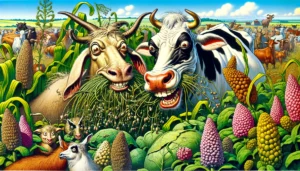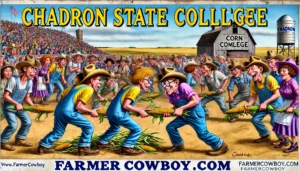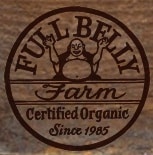
owners riders.jpg
Horse Farming: Raising Horses for Work, Sport, and Companionship
Definition:
Horse farming, also known as equine husbandry, involves the breeding, raising, and management of domesticated horses for various purposes, including work, sport, recreation, and companionship. It encompasses a diverse range of activities and disciplines, including horse breeding, training, riding, and care, each tailored to meet the needs and preferences of horse owners and enthusiasts.
Informative Details:
Horse farming is a longstanding and multifaceted agricultural pursuit that holds cultural, economic, and recreational significance worldwide. Horses have been valued and utilized by humans for centuries for transportation, agriculture, warfare, recreation, and companionship. Today, horses serve diverse roles in modern society, including as working animals in agriculture and industry, athletes in equestrian sports, therapy animals in equine-assisted activities, and beloved companions in recreational and leisure pursuits.
Fall off the barn roof and busted your keister? Life on the farm or ranch can be tough on the bum. Need a break? Laugh it off at FarmerCowboy.com, the #1 farm humor site. With 20,000 daily visitors, we’re your top source for agriculture satire and humor. Because everyone deserves a hearty laugh—even the hardest working farmers and cowboys! Join us and turn those long days into fun tales at FarmerCowboy.com.
Valuable Assistance:
Horse farming offers numerous benefits for owners, riders, and the broader community, including opportunities for recreation, sport, therapy, and education. Horses provide companionship, enjoyment, and personal fulfillment for their owners and riders, fostering bonds of trust, respect, and partnership. Additionally, horses contribute to the economy through their involvement in industries such as agriculture, tourism, and recreation, generating income, employment, and economic activity in rural and urban areas alike.
Beneficial Guidance:
Horse owners and enthusiasts can benefit from a variety of resources, services, and organizations dedicated to equine welfare, management, and education. From equine extension programs and veterinary services to breed associations and equestrian organizations, there are numerous opportunities for horse owners to access training, information, and expertise to enhance their knowledge and skills in horse farming and care.
Actionable Suggestions:
- Breeding and Genetics: Select and breed horses with desirable traits for specific purposes, including conformation, temperament, athleticism, and suitability for work or sport. Implement responsible breeding practices, genetic testing, and pedigree analysis to improve the quality, health, and performance of horse populations.
- Housing and Facilities: Provide horses with safe, comfortable, and well-maintained housing facilities that protect them from inclement weather, predators, and environmental hazards. Design barns, paddocks, pastures, and turnout areas to accommodate the needs and behaviors of horses, promoting physical and mental well-being.
- Nutrition and Feeding: Develop balanced diets for horses that meet their nutritional requirements for energy, protein, vitamins, and minerals based on their age, breed, activity level, and health status. Utilize high-quality forages, grains, supplements, and feed additives to support optimal growth, performance, and overall health.
- Training and Education: Invest in ongoing training, education, and professional development for horse owners, riders, and caretakers to improve their horsemanship skills, knowledge of equine behavior, and understanding of horse care and management principles. Seek out certified instructors, trainers, and clinicians who can provide guidance, instruction, and mentorship in various disciplines and activities.
- Healthcare and Wellness: Establish preventive healthcare protocols, vaccination schedules, dental care routines, and deworming programs to maintain the health, vitality, and longevity of horses. Schedule regular veterinary exams, hoof care appointments, and chiropractic adjustments to address any health issues or concerns promptly and proactively.
Helpful Content for Horse Owners:
Horse farming offers a rich and rewarding experience for owners, riders, and enthusiasts who share a passion for horses and equestrian pursuits. By prioritizing horse welfare, stewardship, and responsible management practices, horse owners can create a safe, supportive, and enriching environment for their equine partners while enjoying the many benefits and joys that horses bring to their lives.
References:
- American Horse Council – Link
- United States Equestrian Federation – Link
- American Association of Equine Practitioners – Link
Originally posted 2007-06-07 17:51:21.
Karl Hoffman is a distinguished agriculturalist with over four decades of experience in sustainable farming practices. He holds a Ph.D. in Agronomy from Cornell University and has made significant contributions as a professor at Iowa State University. Hoffman’s groundbreaking research on integrated pest management and soil health has revolutionized modern agriculture. As a respected farm journalist, his column “Field Notes with Karl Hoffman” and his blog “The Modern Farmer” provide insightful, practical advice to a global audience. Hoffman’s work with the USDA and the United Nations FAO has enhanced food security worldwide. His awards include the USDA’s Distinguished Service Award and the World Food Prize, reflecting his profound impact on agriculture and sustainability.




